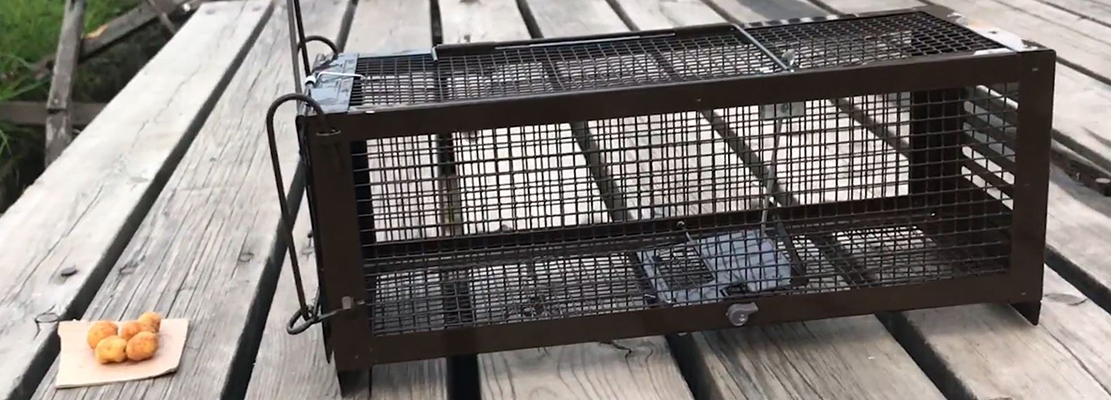What Equipment is Needed to Trap a Wild Saint Petersburg Animal?
Have you tired of excluding, repelling or scaring pest Saint Petersburg animals in your home? You must have tried lethal traps to grab wild animals in your home. Trapping wild animals is the common practice which is being done at home to remove pest animals. But it only works in case of small population, without any beneficial effect in long run. Let’s discuss a few ways of trapping wild animals:

• Nets
Basically, two designs of nets are used; hoop net and throw net. The latter one is incorporated for targeted Florida animals only and the former is used to with the help of handle. For capturing different animals, the size of the net also varies accordingly. If it has a large size, the animals may injure itself while running out. Keep in mind that you must use the shallow net and put the frame against the surface so that animals won’t be able to run away.
• Stretch their foot using Foothold Traps
They are very useful both on land and water. In the USA, they consider to be most efficient tool especially while catching Saint Petersburg muskrat, coyotes, foxes, beaver, raccoon etc. there are different types of the traps such as long spring trap; which is cylindrical in shape and specifically used for attacking raccoons, coil spring trap (most commonly used). Longspring traps minimize the risk of self-harming of the animals as well as prevent catching other species.
• Cage trap at a still position
Cage traps which are also commonly known as box traps are the most selling traps. These traps come in various sizes and styles and particularly made up of plastic or wires. They may have both sides opened. They are made in different models which customers used to call with different names such as Safeguard, Havaharts, and Tomahawk. For instance, some cages are made small in size particularly for trapping Saint Petersburg squirrels which could easily fit in chimney pipes and woodstoves.
• Using Chemicals
It is the most common method that is practiced with the commercial pesticide applicator license by the consent of the NWCO business. Further information related to the usages of chemicals, training can be availed through DEC's Bureau of Pesticide Management or Cornell's Pesticide Management Education Program.
Visit our Saint Petersburg wildlife removal home page to learn more about us.

• Nets
Basically, two designs of nets are used; hoop net and throw net. The latter one is incorporated for targeted Florida animals only and the former is used to with the help of handle. For capturing different animals, the size of the net also varies accordingly. If it has a large size, the animals may injure itself while running out. Keep in mind that you must use the shallow net and put the frame against the surface so that animals won’t be able to run away.
• Stretch their foot using Foothold Traps
They are very useful both on land and water. In the USA, they consider to be most efficient tool especially while catching Saint Petersburg muskrat, coyotes, foxes, beaver, raccoon etc. there are different types of the traps such as long spring trap; which is cylindrical in shape and specifically used for attacking raccoons, coil spring trap (most commonly used). Longspring traps minimize the risk of self-harming of the animals as well as prevent catching other species.
• Cage trap at a still position
Cage traps which are also commonly known as box traps are the most selling traps. These traps come in various sizes and styles and particularly made up of plastic or wires. They may have both sides opened. They are made in different models which customers used to call with different names such as Safeguard, Havaharts, and Tomahawk. For instance, some cages are made small in size particularly for trapping Saint Petersburg squirrels which could easily fit in chimney pipes and woodstoves.
• Using Chemicals
It is the most common method that is practiced with the commercial pesticide applicator license by the consent of the NWCO business. Further information related to the usages of chemicals, training can be availed through DEC's Bureau of Pesticide Management or Cornell's Pesticide Management Education Program.
Visit our Saint Petersburg wildlife removal home page to learn more about us.